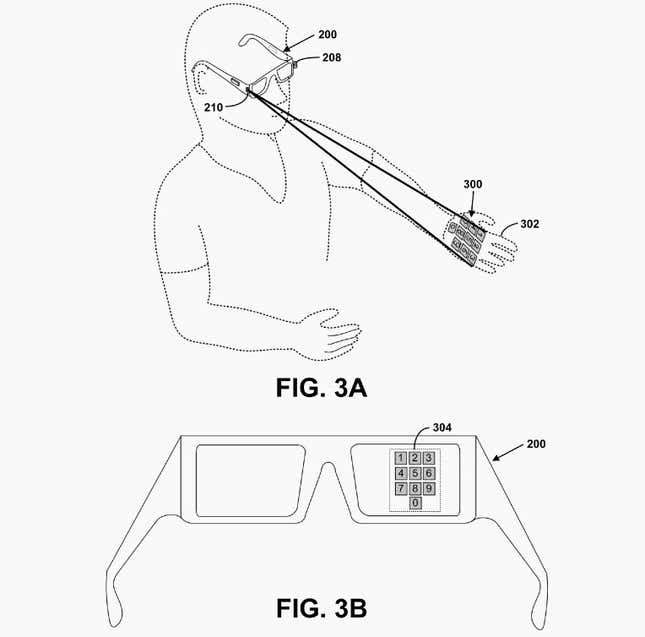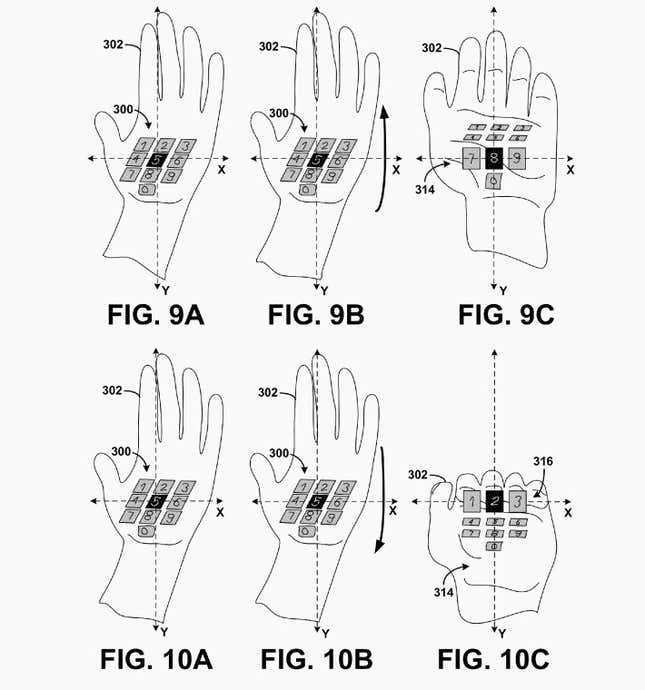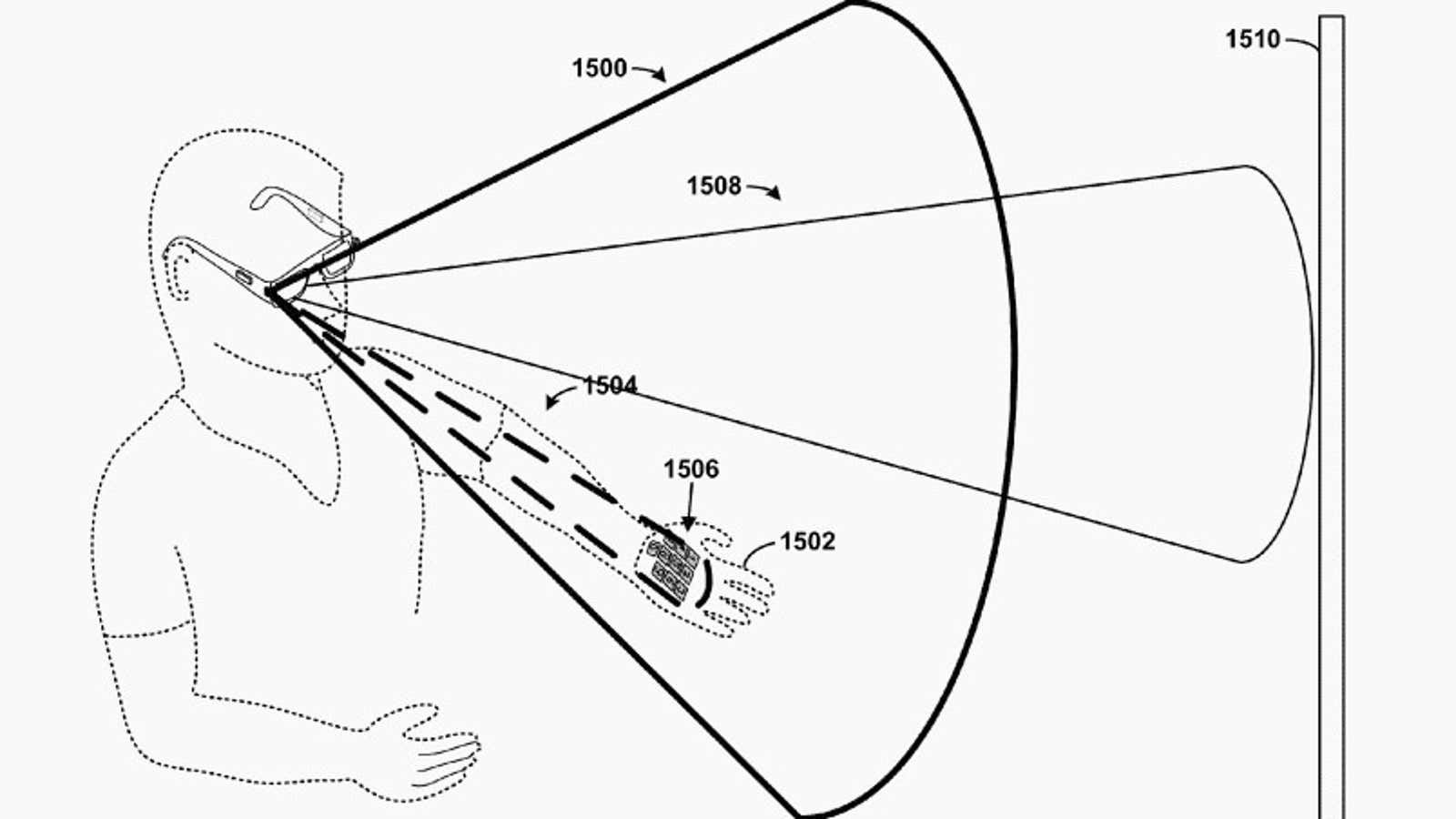The future of wearables might be at your fingertips.
In a patent awarded to Google today, the company outlined a way of using a head-mounted computer, like Google Glass, to project keyboards onto different body parts. Some of the biggest issues with augmented-reality devices like Google Glass and Microsoft’s forthcoming HoloLens are they ways you interact with them, and how much you can actually see on the display. Google’s patent could solve at least one of these issues, if not both: The patent suggests a device could project onto a “display hand,” instead of having to rely on fiddly onboard controls, or a smartphone to control the device.

Like a virtual version of Nintendo’s Power Glove, the patent suggests a projector built into a wearable could overlay keyboards onto the wearer’s arms. The patent shows different keyboards for different situations—like a keypad for calls, or a full QWERTY keyboard for longer messages. The display would also alter depending on the shape of the wearer’s hand, making certain keys more prominent—and easier to hit—as the hand shifts.

The patent also suggests that the device could project a trackpad onto a body part, which would allow for finer control, but might get ticklish after a while.
There are already devices on the market that can project virtual keyboards onto surfaces, but Google’s patent takes the concept a step further. While there’s no guarantee that Google will implement this idea into any future product, we could soon be living in a world where we are all randomly touching body parts to make our glasses-based computers do things. Similar to Google Glass itself, these actions will likely look bizarre to onlookers.
A representative for Google told Quartz that future products can’t necessarily be gleaned from patent filings, and that the Google Glass team is ”heads down working on the future of the project.”




